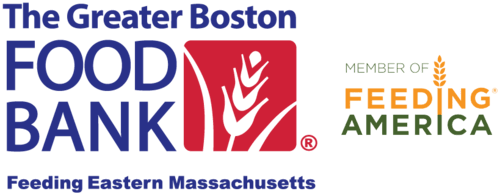More than a third of Massachusetts families with young children faced diaper need during COVID
 Study: More than a third of Massachusetts families with young children faced diaper need during COVID
Study: More than a third of Massachusetts families with young children faced diaper need during COVID
New study reveals pervasiveness of diaper need; association with poverty, food insecurity and chronic illness
BOSTON – March 8, 2022 – A study published in Health Equity by researchers from University of Vermont, The Greater Boston Food Bank, and University of Maryland Baltimore County found that 36% of Massachusetts families with young children could not afford enough diapers for their children during the COVID-19 pandemic. Diaper need has become a growing public health issue associated with poverty, food insecurity, and chronic illness according to the findings.
Researchers identified a number of populations with high diaper need: including parents or caregivers under age 25, Latinx parents or caregivers, and parents or caregivers who were unemployed before the pandemic. In addition, families who were food insecure or had a member with a chronic illness were also more likely to experience diaper need (56% and 48%, respectively).
“Past studies have found similarly high rates of diaper need in the U.S. While the federal government made cash transfers to families and nonprofit diaper banks ramped up distribution considerably during Covid, the reported rate of diaper need held steady. This suggests continued high levels of unmet need,” said lead author Emily H. Belarmino of the University of Vermont Department of Nutrition and Food Sciences and the National Food Access and COVID Research Team.
Two active Massachusetts bills, one to establish a pilot diaper distribution program and another to give a diaper payment to people who qualify for help from the Department of Transitional Assistance, are directly concerned with diaper need. There are implications for federal policy as well. “Possible interventions include designating diapers as a medical necessity, thus facilitating their distribution by healthcare providers; allowing the purchase of diapers with health savings and flexible spending accounts (HSAs and FSAs); removing sales tax in states that have not yet done so; and providing increased tax credits to families to support the purchase of diapers, such as the boost in the 2021 Child Tax Credit from $2,000 to $3,600 for children under the age of six,” the authors wrote.
“Past studies have documented clear harm to children and mothers when a family cannot afford an adequate supply of diapers. Every day people make impossible choices between buying food and diapers,” said study co-author and researcher Rachel M. Zack of The Greater Boston Food Bank. “There is potential for government agencies and nonprofits that provide food assistance to ask the families they serve about diaper access and direct them to resources in the community that can help.”
“In the emerging body of research on diaper need, this is the first study to draw an association between it and chronic illness. We know that chronic illnesses strike people in poverty at elevated rates. This makes clear that people have a whole range of basic needs, all of which need to be addressed if we want families to thrive,” said Joanne Samuel Goldblum, CEO of the National Diaper Bank Network. “We also know that more government and philanthropic support is needed to start, grow and sustain community-based diaper bank programs.”
The study also reviewed how caregivers cope with a lack of diaper access. The most common strategy was borrowing money or diapers from family and friends, reported by 47% of respondents. The second most common strategy was stretching diapers by changing the child less frequently (37%) which is associated with diaper rash and more serious health risks. Nearly 27% of respondents with a lack of access to diapers reported getting donated diapers from an agency or support organization such as a community-based diaper bank.
Additionally, high rates of diaper need were reported among users of food assistance programs:
- 60% of food pantry users
- 60% of WIC users
- 55% of SNAP users
The full study/article is available at https://www.liebertpub.com/doi/10.1089/heq.2021.0093.
About NFACT
The National Food Access and COVID research Team (NFACT) is a collaboration of researchers across 15 states exploring the impact of COVID-19 on food access, food security and food systems. NFACT research is examining these impacts across local, state, regional and national levels and is integrating data to explore outcomes and impacts across scales. NFACT is committed to rigorous, comparative, and timely food access research during the time of COVID. We do this through collaborative, open access platforms and research that prioritizes communication to key decision-makers while building our scientific understanding of food system behaviors and policies. More information is available at nfactresearch.org.
About The Greater Boston Food Bank:
The Greater Boston Food Bank (GBFB) is the largest hunger-relief organization in New England and among the largest food banks in the country. In response to the economic impact of the COVID-19 pandemic, GBFB distributed the equivalent of nearly 97 million meals in fiscal year 2021 through its network of 600 dedicated food distribution partners and programs in the 190 cities and towns across Eastern Massachusetts. A member of Feeding America, the nation’s food bank network, GBFB’s mission is to end hunger here and it is committed to providing at least three healthy meals a day to everyone in need. For more information, visit us at GBFB.org, follow us on Facebook, Twitter (@gr8bosfoodbank) and Instagram, or call us at 617.427.5200.
Media Contact
Laura Ruiz
The Castle Group
781.506.0085
lruiz@thecastlegrp.com
